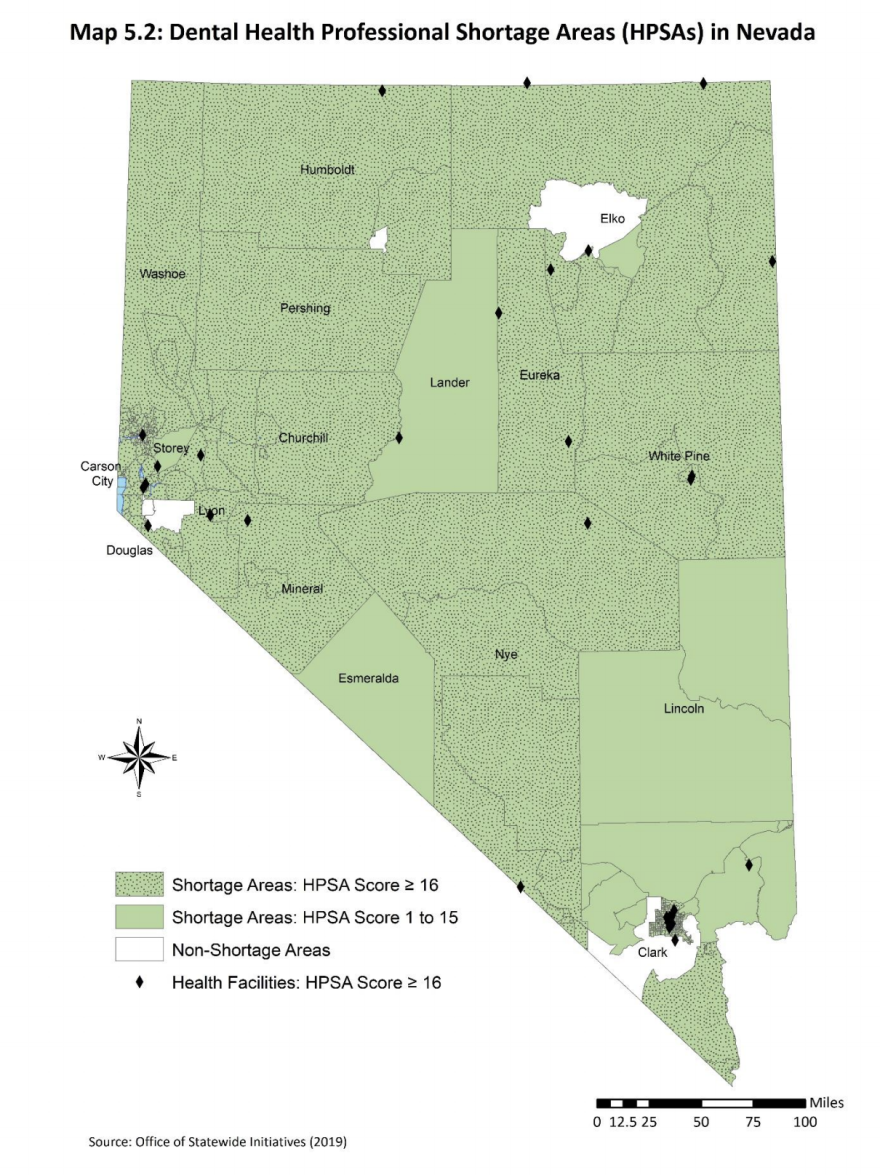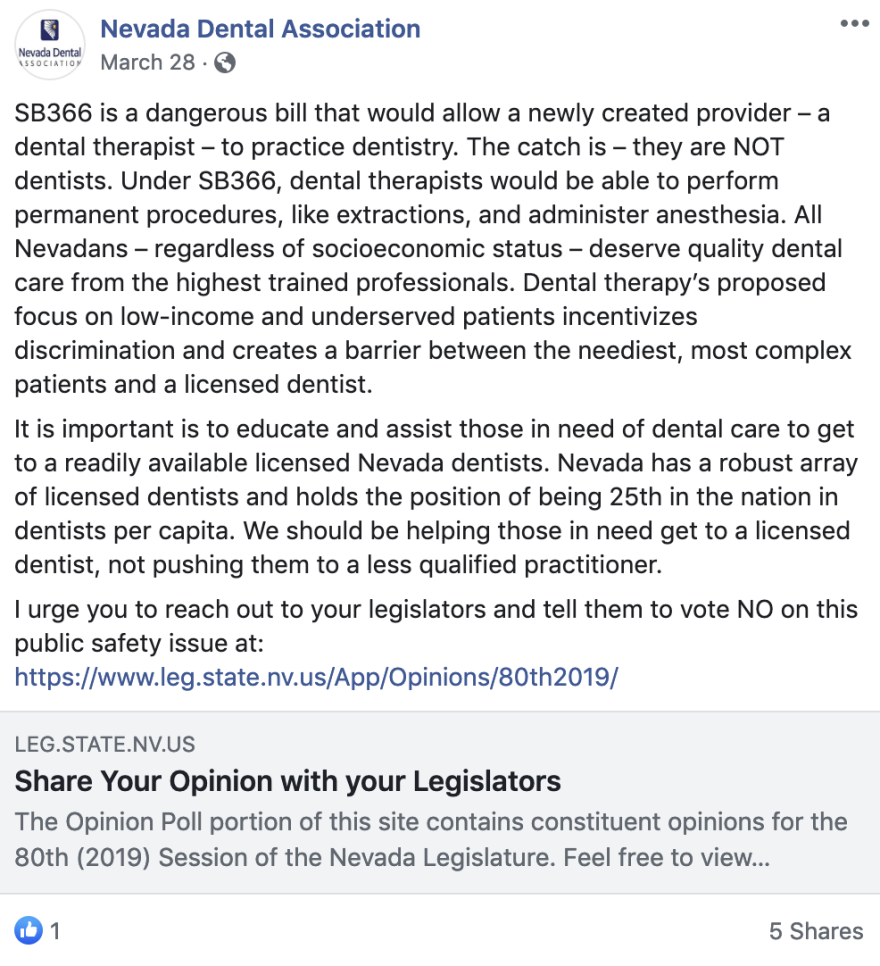Lawmakers have introduced a bill to allow mid-level dental providers, called dental therapists, to practice in Nevada. KUNR’s Lucia Starbuck explores why this bill has caused heated debate within the dental community.
All counties in Nevada have some level of a dental health professional shortage. This designation means that there aren’t enough providers to adequately serve the population, and it identifies which areas are in the greatest need of resources.

That’s why Democratic State Senator Julia Ratti introduced Senate Bill 366.
“We have dentists and we have dental hygienists. And, so what the dental therapist does is it creates that mid-level provider,” Ratti said. “And, so it will create more affordable and more accessible healthcare and really address a significant problem that we have in Nevada, which is a shortage of dental health providers.”
A dental therapist is trained to do routine and preventative services, fill cavities, extract damaged adult teeth and even prescribe antibiotics for infections. This position would require a dental hygienist degree and at least two years of academic study at an accredited program.
Jessica Woods is a public health dental hygienist for the Southern Nevada Health District. She says dental therapists can travel to patients in rural Nevada where dental shortages are most severe.
“Many of the reasons why dentists have a hard time setting up a practice in these rural areas is because they're burdened by the high amount of student loan debt that they might have and the low reimbursement rates that we have in the state through Medicaid,” Woods said.
The Nevada Dental Hygienists' Association sponsored the bill, while the similarly named Nevada Dental Association is against the bill.

The organization is calling SB 366 a dangerous bill. Their statement says that dental therapists are not dentists and shouldn’t be allowed to perform permanent procedures or administer anesthesia. However, the organization representatives declined further comment.
Individual dental practices are speaking out against the bill as well on social media. Siena Dental in Henderson has even created an opposition video. The video sounds like a horror movie and includes Pediatric Dentist Ashley Hoban speaking out against the bill.
“People won't know if they're having dental treatment done by a dentist with years and years of education and experience or someone with minimal experience. This really concerns me as a dentist, but it really, really concerns me as a mother,” Hoban said in the video.
David Mahone, a general dentist from the office that posted the video, says there is not an incentive for dental therapists to practice in rural Nevada, and he’s worried about public safety if the bill is passed.
“The dental therapist doesn't have the full skill set of a dentist, so you're creating a dental provider that's handicapped in their ability to treat patients,” Mahone says, “So, they're going to provide treatment and if something goes wrong, they're not going to be able to correct it.”
Jessica Woods, the public health dental hygienist we heard from earlier, says dental therapists are appropriately trained for the limited number of procedures they are able to perform. That training would require at least 1,000 hours of clinical practice under a supervising dentist.
Some other states have allowed dental therapists to practice in varying capacities, including Arizona and New Mexico.
KUNR's Paul Boger contributed to this report. Boger is a political reporter at KUNR.







